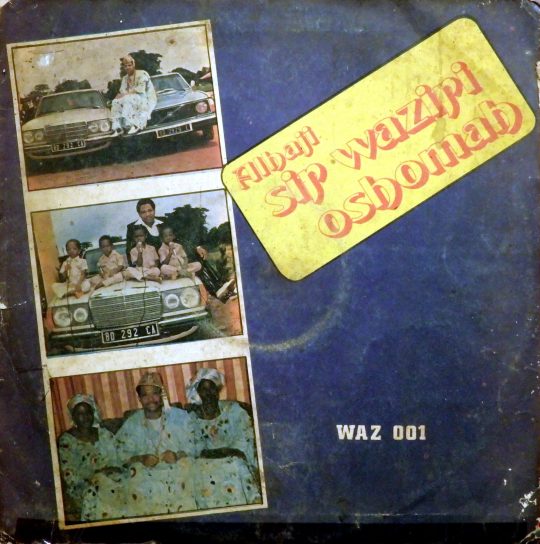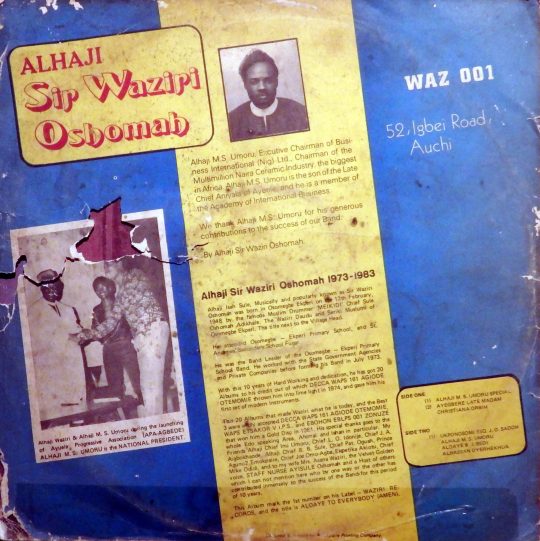#waziri
Explore tagged Tumblr posts
Text

That time Tarzan got a "Dear John" letter, by Russ Manning.
4 notes
·
View notes
Audio
Listen/purchase: Omhona – Omhona [Vol. 3] by Alhaji Waziri Oshomah
6 notes
·
View notes
Audio
one of my favourite songs right now
3 notes
·
View notes
Text
WAZIRI MKUU ATOA WITO KWA VIONGOZI WA TAASISI ZA DINI
▪️Azitaka zihubiri amani, zihamasishe waumini kushiriki shughuli za kimaendeleoWAZIRI MKUU, Kassim Majaliwa amezitaka taasisi za dini nchini kuendelea kuwahamasisha waumini wake kudumisha amani na kushiriki katika shughuli za maendeleo.Ameyasema hayo leo (Jumanne, Januari 14, 2025) alipokutana na viongozi wa Kitaifa wa Jumuiya ya Kiislam ya Ahmadiyya ofisi ndogo ya Waziri Mkuu Oysterbay jijini…

View On WordPress
0 notes
Text
Archaeologists Excavating the Tomb of Egypt’s First Female Pharaoh Found Hundreds of Jars Still Holding Remnants of Wine
The dig has also shed new light on the reign of the ancient queen.
— Adam Schrader | October 18, 2023
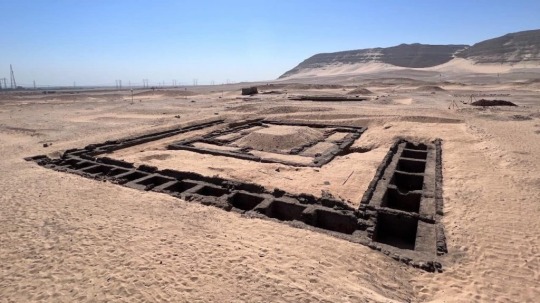
An archaeology team has discovered evidence that the Ancient Egyptian Queen Merneith “had a great position” and was responsible for the central government offices. Photo courtesy of Egypt’s Ministry of Tourism and Archaeology
Archaeologists digging in one of the oldest cities in Egypt have discovered evidence that sheds new light on the life of the ancient Egyptian queen Merneith, who ruled during the 1st Dynasty.
The excavation of a tomb in the Umm al-Qaab area in Abydos found an inscription on a “Stone Vessel” that provides new historical information about Merneith’s reign, during which she held “A Great Position” and was responsible for the central government offices, said Christiana Köhler, who led the dig.
“It has been speculated that Merneith may have been the first female Pharaoh in Ancient Egypt,” Köhler said in a news release, “but her true identity remains a mystery,”
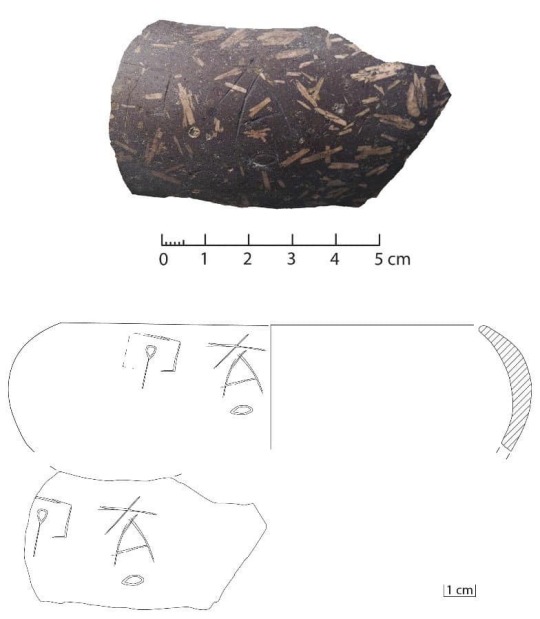
A fragment of a stone vessel recently found in the tomb of Queen Merneith. It has an incised inscription with her name on the right and the mention of the royal treasury on the left. Photo courtesy of EC Köhler, M Minotti.
Köhler specified that Merneith, also known as Meret-Neith, may have been in charge of the treasury among other government offices, supporting the idea of her historical significance. She is the only 1st-Dynasty woman whose tomb has been uncovered in Abydos so far.
“Considering that these are the remains of people’s lives and actions from 5,000 years ago, we are stunned every day at the amazing detail we encounter during our investigations, including the perfectly preserved grape seeds, craftwork and even footprints in the mud,” Köhler said over email.
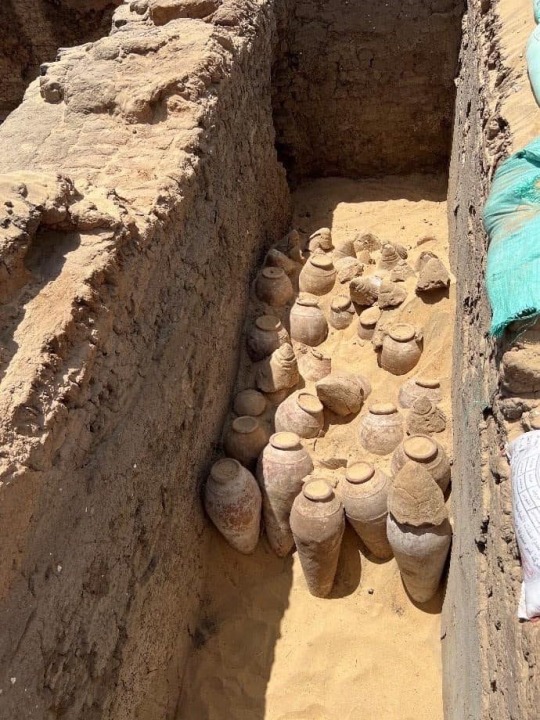
The Wine Jars are seen during the excavation of Merneith’s Tomb. Photo courtesy of Egypt’s Ministry of Tourism and Archaeology
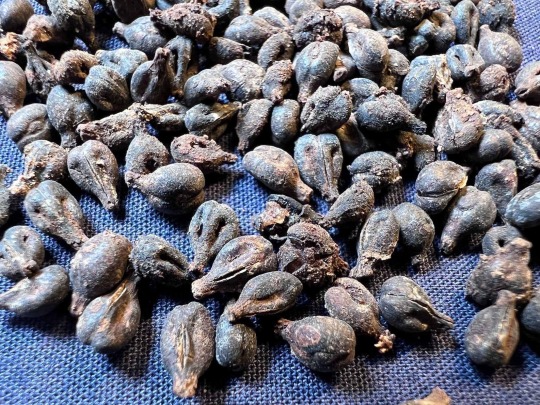
Perfectly Preserved Grape 🍇 Seeds: Egypt’s Tourism Ministry highlighted hundreds of 5,000-year-old wine jars found in the tomb in the Umm al-Qaab area in Abydos, one of the oldest cities in Egypt located about 354 miles south of Cairo. Photo courtesy of Egypt’s Ministry of Tourism and Archaeology
Discoveries made in the dig also “challenge the long-held belief in human sacrifice,” Köhler added in the news release.
Next to Merneith’s burial site, archaeologists found a group of 41 tombs for her courtiers and servants, indicating these chambers were built during different periods of time.
“This observation, together with other evidence, radically challenges the oft-proposed, but unproven idea of ritual human sacrifice in the 1st Dynasty,” Köhler said.
The news release highlighted the discovery of hundreds of 5,000-year-old wine jars that had never been opened. The archaeological team—hailing from Egypt, Germany and Austria—found the remains of wine inside.
Mustafa Waziri, Secretary General of Egypt’s Supreme Council of Antiquities, said in a statement that the discovered jars are large in size and “in a good condition of preservation.”
“Some of them are very well preserved with their jar stoppers still intact,” Köhler said.
#Archaeology#Ancient Egyptian QueenMerneith#Egypt 🇪🇬#Egypt’s First Female Pharaoh#Archaeologists | Jars 🫙 | Wine 🍷#Tomb | Umm al-Qaab area | Abydos#1st Dynasty#Egypt’s Ministry of Tourism & Archaeology#Stone Vessel#Christiana Köhler#Preserved Grape 🍇 Seeds | Craftwork | Footprints 👣#Mustafa Waziri | Secretary General | Egypt’s Supreme Council of Antiquities
0 notes
Text
Islamic Cleric Proposes Compelling Civil Servants to Marry Second Wife
A prominent Islamic scholar, Sheikh Aminu Baba Waziri, has urged lawmakers to enforce legislation mandating civil servants at Level 12 to enter into polygamous marriages. In a passionate Friday sermon delivered at the Takur Commercial Mosque in Dutse, Jigawa State, Waziri expressed concern over the surplus of unmarried women in society, urging men to step forward and take them as additional…

View On WordPress
#CIVIL SERVANTS#Islamic cleric#JIGAWA STATE#marriage law#polygamy#Quranic verses#Sheikh Aminu Baba Waziri#societal norms
0 notes
Text
As a woman from a muslim family with a waziri pashtun father that prohibited me from appearing on windows, going out on the garden and going to male doctors even when I was on the verge of dying, hearing that trans women experience misogyny and cultural/religious oppression always makes me laugh.
#radblr#radical feminist safe#radical feminists please touch#radfemblr#radical feminists please interact#radfeminism#trans exclusionary radical feminist#radical feminist community#radical feminst#radical feminism#radical feminists do interact#radical feminists do touch#afghanistan#free afghan women
1K notes
·
View notes
Text
Kwara 2023: Hausa Community throws weight behind YPP guber candidate, Gobir
The Hausa community in the Zango area of Ilorin-South has thrown its weight behind the Young Progressives Party (YPP) governorship candidate Waziri Yakubu Gobir (the Wazirin Hausa and Madawaki of Ilorin) for the March 11 governorship election. The community unanimously endorsed Gobir during his visit to the community in continuation of his campaign across the wards of the state to canvass for…

View On WordPress
0 notes
Text
Archeaology gives us the name of another woman in History
Archaeologists digging in one of the oldest cities in Egypt have discovered evidence that sheds new light on the life of the ancient Egyptian queen Merneith, who ruled during the 1st Dynasty.
The excavation of a tomb in the Umm al-Qaab area in Abydos found an inscription on a “stone vessel” that provides new historical information about Merneith’s reign, during which she held “a great position” and was responsible for the central government offices, said Christiana Köhler, who led the dig.
“It has been speculated that Merneith may have been the first female Pharaoh in Ancient Egypt,” Köhler said in a news release, “but her true identity remains a mystery,”
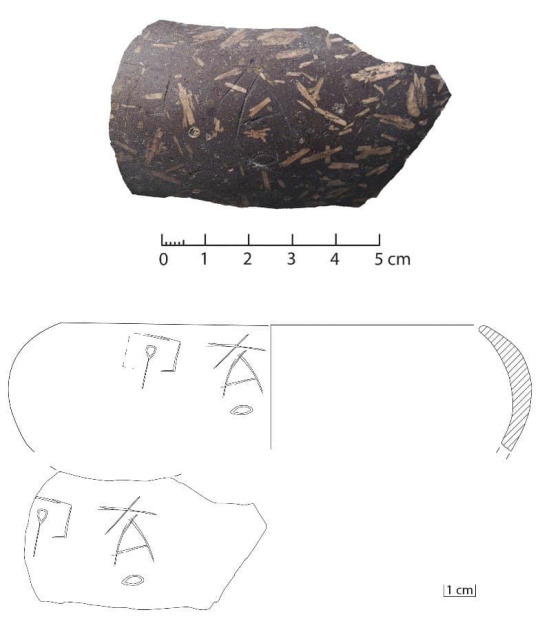
A fragment of a stone vessel recently found in the tomb of Queen Merneith. It has an incised inscription with her name on the right and the mention of the royal treasury on the left. Photo courtesy of EC Köhler, M Minotti.
Köhler specified that Merneith, also known as Meret-Neith, may have been in charge of the treasury among other government offices, supporting the idea of her historical significance. She is the only 1st-Dynasty woman whose tomb has been uncovered in Abydos so far.
“Considering that these are the remains of people’s lives and actions from 5,000 years ago, we are stunned every day at the amazing detail we encounter during our investigations, including the perfectly preserved grape seeds, craftwork and even footprints in the mud,” Köhler said over email.
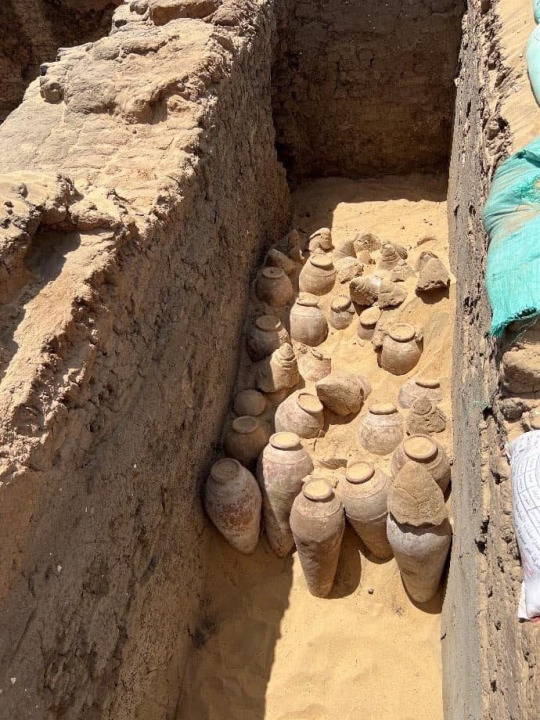
The wine jars are seen during the excavation of Merneith’s tomb. Photo courtesy of Egypt’s Ministry of Tourism and Archaeology

Egypt’s Tourism Ministry highlighted hundreds of 5,000-year-old wine jars found in the tomb in the Umm al-Qaab area in Abydos, one of the oldest cities in Egypt located about 354 miles south of Cairo. Photo courtesy of Egypt’s Ministry of Tourism and Archaeology
Discoveries made in the dig also “challenge the long-held belief in human sacrifice,” Köhler added in the news release.
Next to Merneith’s burial site, archaeologists found a group of 41 tombs for her courtiers and servants, indicating these chambers were built during different periods of time.
“This observation, together with other evidence, radically challenges the oft-proposed, but unproven idea of ritual human sacrifice in the 1st Dynasty,” Köhler said.
The news release highlighted the discovery of hundreds of 5,000-year-old wine jars that had never been opened. The archaeological team—hailing from Egypt, Germany and Austria—found the remains of wine inside.
Mustafa Waziri, Secretary General of Egypt’s Supreme Council of Antiquities, said in a statement that the discovered jars are large in size and “in a good condition of preservation.”
“Some of them are very well preserved with their jar stoppers still intact,” Köhler said.
#women in history#Discoveries in Archaeology#Egypt#Ancient Egypt#queen Merneith#1st Dynasty#Abydos#Queen Meret-Neith#5000 years ago#Umm al-Qaab
283 notes
·
View notes
Photo

The Return of Tarzan cover by Neal Adams.
34 notes
·
View notes
Text
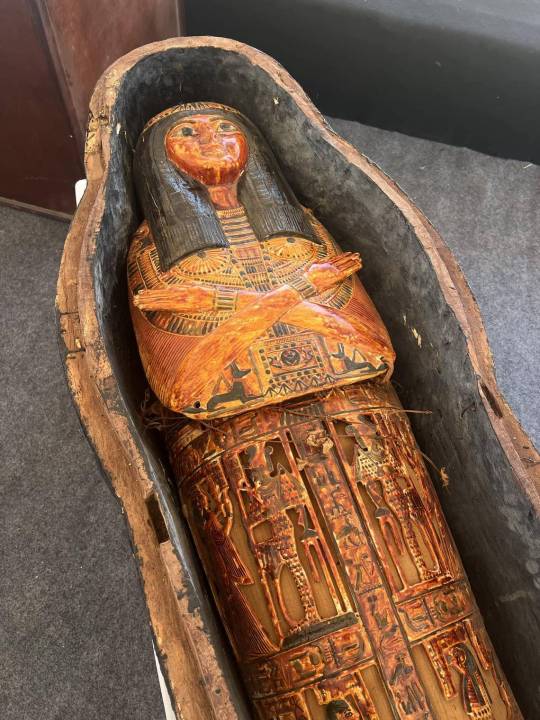
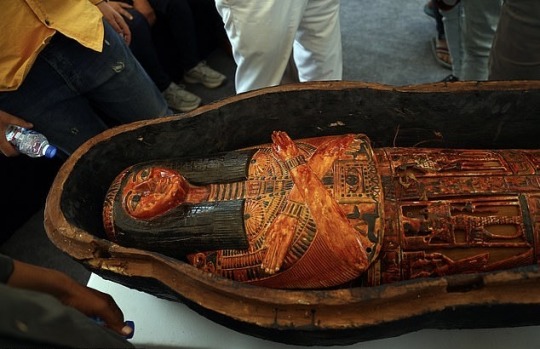
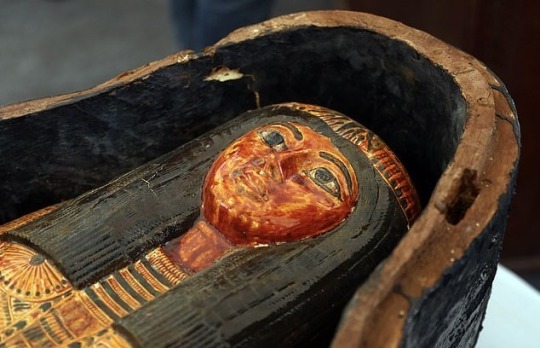
3,400-Year-Old Ancient Egyptian Cemetery Found With Colorful Coffins
Archaeologists have uncovered an Ancient Egyptian cemetery dated to more than 3,000 years ago containing the colorful coffin of a high priest's daughter and preserved mummies, among hundreds of other finds.
Researchers unearthed the cemetery at the Tuna el-Gebel necropolis, located almost 170 miles south of Cairo in Minya Governate, Egypt's Ministry of Tourism and Antiquities announced in a statement on Sunday.
The cemetery, which dates back to the New Kingdom (16th-11th centuries B.C.) of ancient Egypt, was used as a burial ground for senior officials and priests during the period, according to archaeologists.
The cemetery was uncovered during excavations that began last August in the Al-Ghuraifa area of Tuna El-Gebel and features "many tombs" that have been carved into rock.
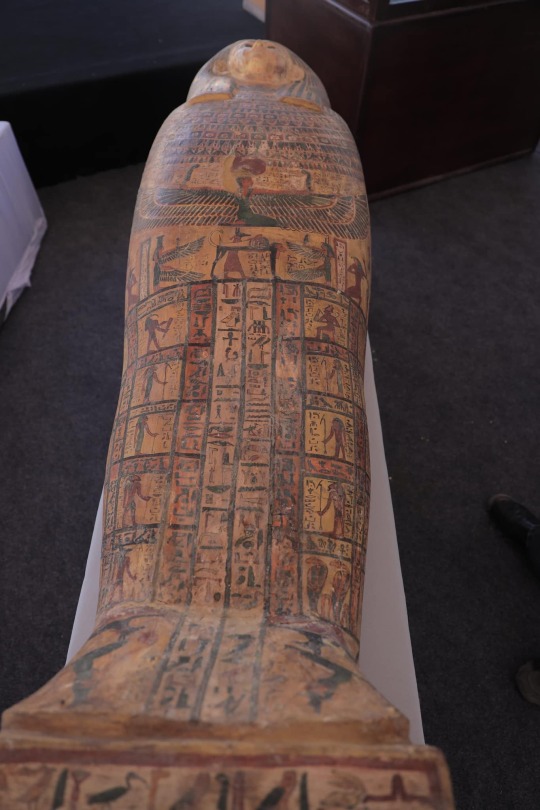
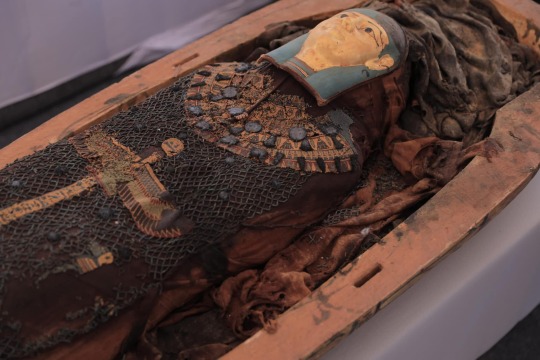
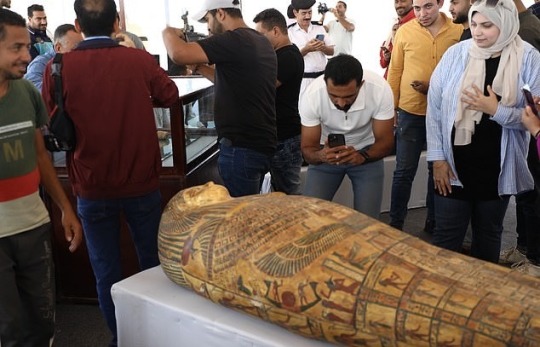
Researchers have also made hundreds of archaeological finds at the site, including stone and wooden coffins—some of which contained mummies—amulets, ornaments and funerary figurines.
One of the most notable finds at the cemetery is a colorful, engraved coffin belonging to the daughter of a high priest of the ancient Egyptian god Djehuti, often referred to as Thoth.
This deity, commonly depicted as a man with the head of an ibis or baboon, was a key figure in ancient Egyptian mythology and played several prominent roles. For example, Thoth was credited with the invention of writing and is also believed to have served as a representative of the sun god Ra.
Next to the coffin of the high priest's daughter, archaeologists found two wooden boxes containing her canopic jars, as well as a complete set of "ushabti" statues.
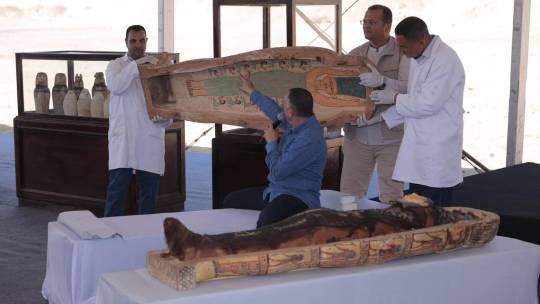
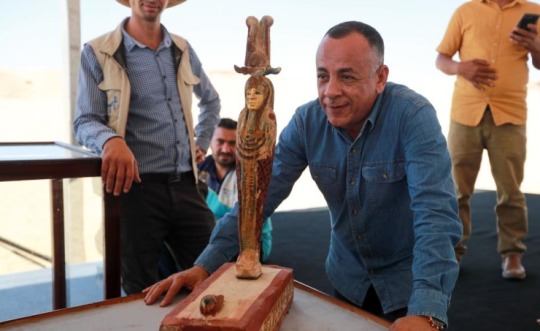
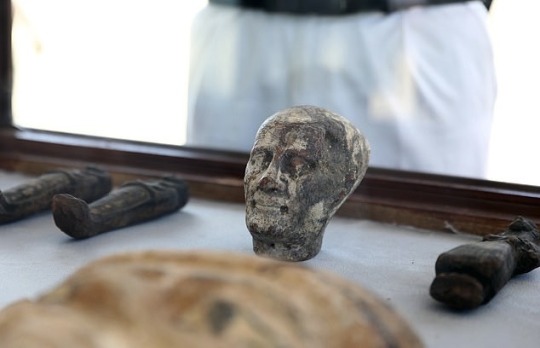
Canopic jars were vessels used by the ancient Egyptians to store the organs removed from the body in the process of mummification—the lungs, liver, intestines and stomach—in order to preserve them for the afterlife.
Ushabti statues, meanwhile, were figurines used in ancient Egyptian funerary practices that were placed in tombs in the belief that they would act as servants for the deceased in the afterlife.
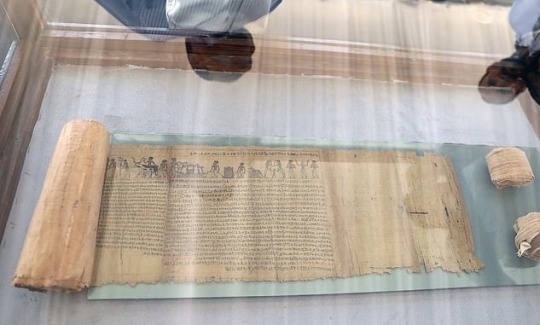
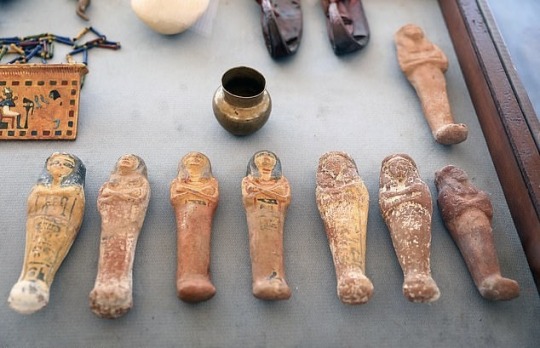
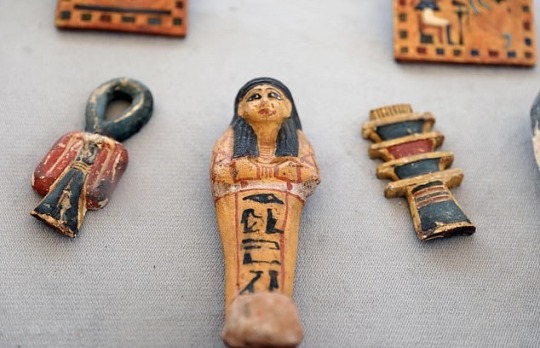
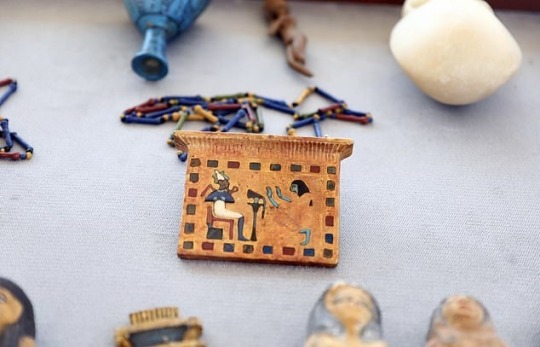
Archaeologists also made another particularly fascinating find at the New Kingdom cemetery: a complete and well-preserved papyrus scroll measuring approximately 42-49 feet in length that features information related to the Book of the Dead.
The Book of the Dead is a collection of ancient Egyptian funerary texts consisting of spells or magic formulas that were placed in tombs. These texts were thought to protect and aid the deceased in the afterlife. They were generally written on papyrus, a material similar to thick paper that was used as a writing surface in ancient times.
Mostafa Waziri, secretary general of the Supreme Council of Antiquities, said in the statement that the discovery of the cemetery is an "important" find.
By Aristos Georgiou.
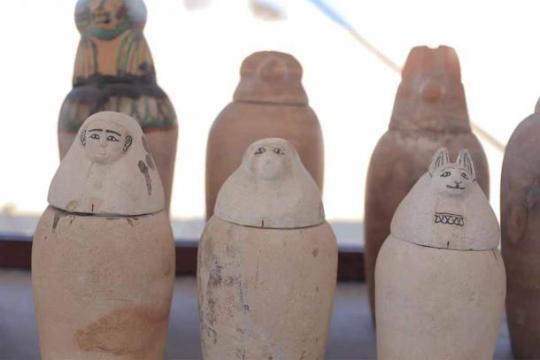
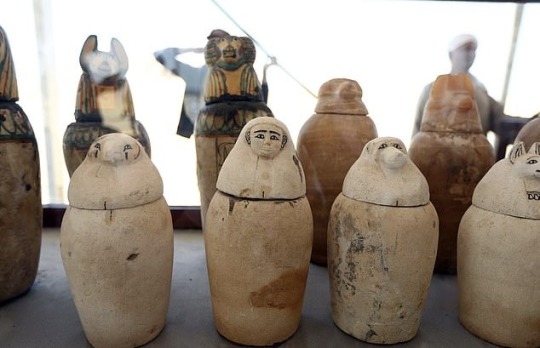
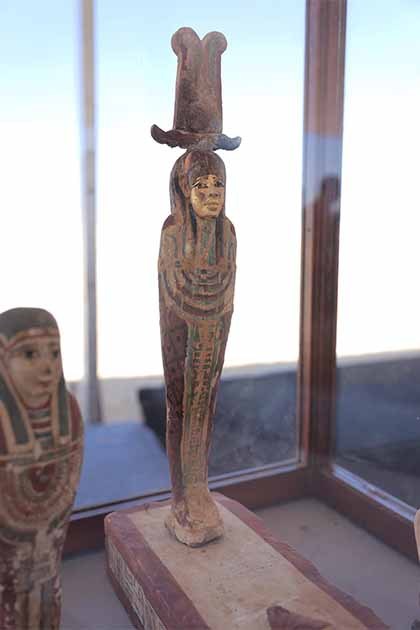
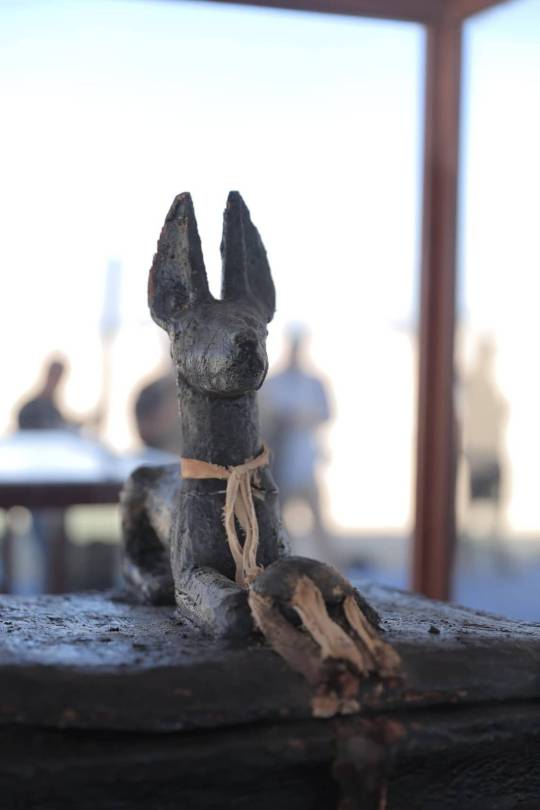
#3400-Year-Old Ancient Egyptian Cemetery Found With Colorful Coffins#Tuna el-Gebel necropolis#Minya Governate#ancient grave#ancient tomb#ancient cemetery#ancient necropolis#book of the dead#canopic jars#Egyptian god Djehuti#high priest#high priestess#ancient artifacts#archeology#archeolgst#history#history news#ancient history#ancient culture#ancient civilizations#ancient egypt#egyptian history#egyptian gods#egyptian mythology#egyptian art
189 notes
·
View notes
Text
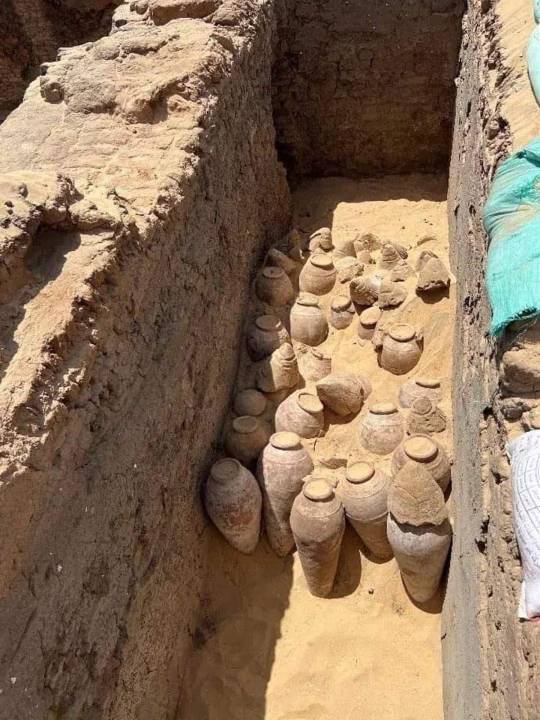
5000-Year-Old Pharaonic wine jars found intact at Abydos
The Egyptian-German-Austrian archaeological mission excavating the tomb of Queen Merit-Neith of the 1st Dynasty in Umm El Qa’ab at Abydos in Sohag, succeeded in uncovering hundreds of sealed jars, containing remnants of wine, in addition to uncovering a group of funerary equipment.
Mostafa Waziri, Secretary General of the Supreme Council of Antiquities, said the archaeological team found several grave goods, including hundreds of large wine jars, some of which had intact stoppers and contained the well-preserved remains of 5000-year-old wine.
Inscriptions also indicate that Merit-Neith had been in charge of central government offices, like the treasury, which lends credence to the theory that she played a historically significant role, Waziri noted.
Read more
115 notes
·
View notes
Text
WAZIRI MKUU AKUTANA NA UJUMBE KUTOKA JAPAN
Waziri Mkuu, Kassim Majaliwa leo Januari 14, 2025 amefanya mazungumzo na Naibu Waziri wa Mambo ya Nje wa Japan, Mheshimiwa Fujii Hisayuki (kulia kwake) na ujumbe aliofuatana nao kwenye ukumbi wa Mikutano wa Ofisi Ndogo ya Waziri Mkuu, Magogoni jijini Dar es salaam. Katika mazungumzo yao, Waziri Mkuu amemweleza Mheshimiwa Fujii kuwa Tanzania imeendelea kuweka mazingira rafiki ya kufanya uwekezaji…

View On WordPress
0 notes
